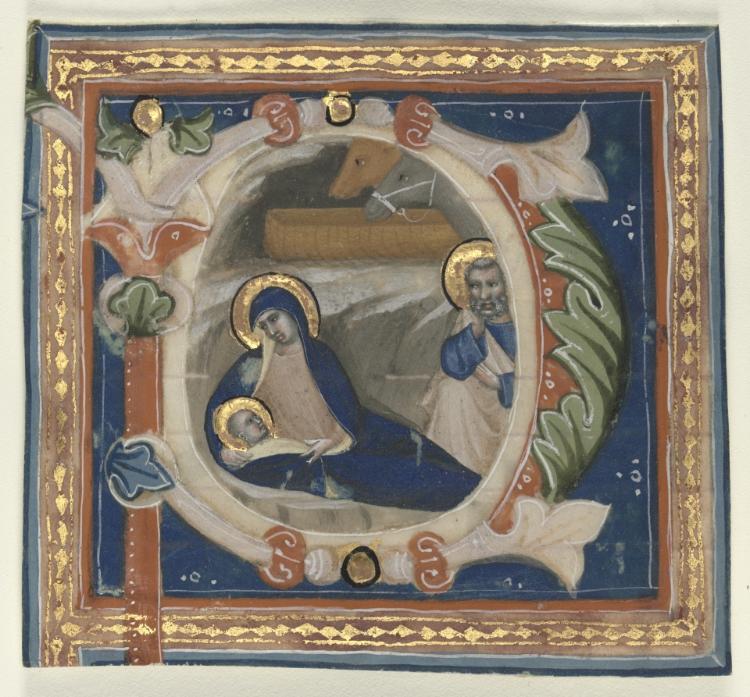We love Christmas day — the stillness and silence of the morning, the sense of time slowed down, the giving of gifts, the gathering with family and loved ones, the trees, the lights, the sweet things to eat.
We love this day, because it’s a moment of forever, when the hard edges of life seem a little softer. For just this moment, all is right in the world; things are as they are meant to be.
The world is made right by the Child who comes, who is “God with us,” appearing in his kindness and generous love.
All through Advent in our liturgy, we hear the prophets’ promises that when the Savior comes the world will be made new — rivers will flow in the desert, flowers will bloom in the burning sands. The blind will see, and the deaf hear; the lame will walk, and the mute will sing.
We hear the same promise in many of the psalms for the season: All the earth sings a new song, blessing God’s holy name; the sea roars, the fields exult, the trees of the wood sing for joy before the Lord who comes.
In the midst of all this beauty, this new creation, the prophets see a path opening up, “a holy way,” Isaiah calls it. “It is for those with a journey to make, and on it the redeemed will walk.”
The more we reflect on the Scriptures, the more deeply we enter into the mystery of God’s plan of love. All of history was set in motion for this day, to bring forth Jesus, to open the way for you and me to meet the God who comes out of love for us.
From this day on, we have a journey to make, and we walk that holy way with God.
When we read the story of that first Christmas, we are struck by the attraction of the Child. All of the characters are drawn, as if by a magnet, to the manger. The shepherds come, and the Wise Men from the East; called by angels, led by a star. Even the terrible Herod finds himself pulled toward Bethlehem and the Child.
And we are drawn back, year after year, to find Mary and Joseph and the Child wrapped in swaddling clothes and lying in a manger.
Jesus entered our world as a Child, and he told us that in order to enter his world, we also need to become children: “Unless you turn and become like children, you will never enter the kingdom of heaven.”
This becoming like children begins in baptism: “But to all who received him, who believed in his name, he gave power to become children of God.”
We hear these words from the Gospel of St. John on Christmas day in the liturgy. And these words reveal one of the mysteries of Christmas: God becomes a Child, and we must, too.
Another mystery of Christmas is revealed in the Mass. Christmas means “Christ’s Mass.” And Christmas continues, Christ comes again, in every Mass.
We begin the Mass remembering the first Christmas night, singing the song the angels sang in heaven over the shepherds out in the field: “Glory to God in the highest.”
The silent prayer that the priest prays as he mingles water with wine at the altar brings each of us into the deep purpose of the Incarnation: “May we come to share in the divinity of Christ, who humbled himself to share in our humanity.”
Out of humility, Jesus lowered himself from heaven to share in our humanity. He promises us now, that if we humble ourselves, he will exalt us to share in his divinity.
This is the joy of Christmas!
We come down to the manger, and the manger leads us to the Mass. The Child who comes on Christmas promised to never leave us. “Behold, I am with you always, until the end of the age,” he said.
He renews that promise, the promise of Christmas, in every Eucharist. The mysterious name that the angel revealed to St. Joseph: Emmanuel, “God is with us.” Jesus comes to be with us, to be the bread of life, to fill us with his own divine life.
We can find this Child, we can meet him again and again, in our churches. He is there at the altar, he is there in the tabernacle, just as he was present in the manger, waiting for us, waiting to give himself to us.
Merry Christmas to you and your families and loved ones! Let’s keep praying for one another in this holy season.
And let’s ask Mary, his mother, to help us to live with all the dignity of children of God, and to bring a new birth of her Son in every human heart.

